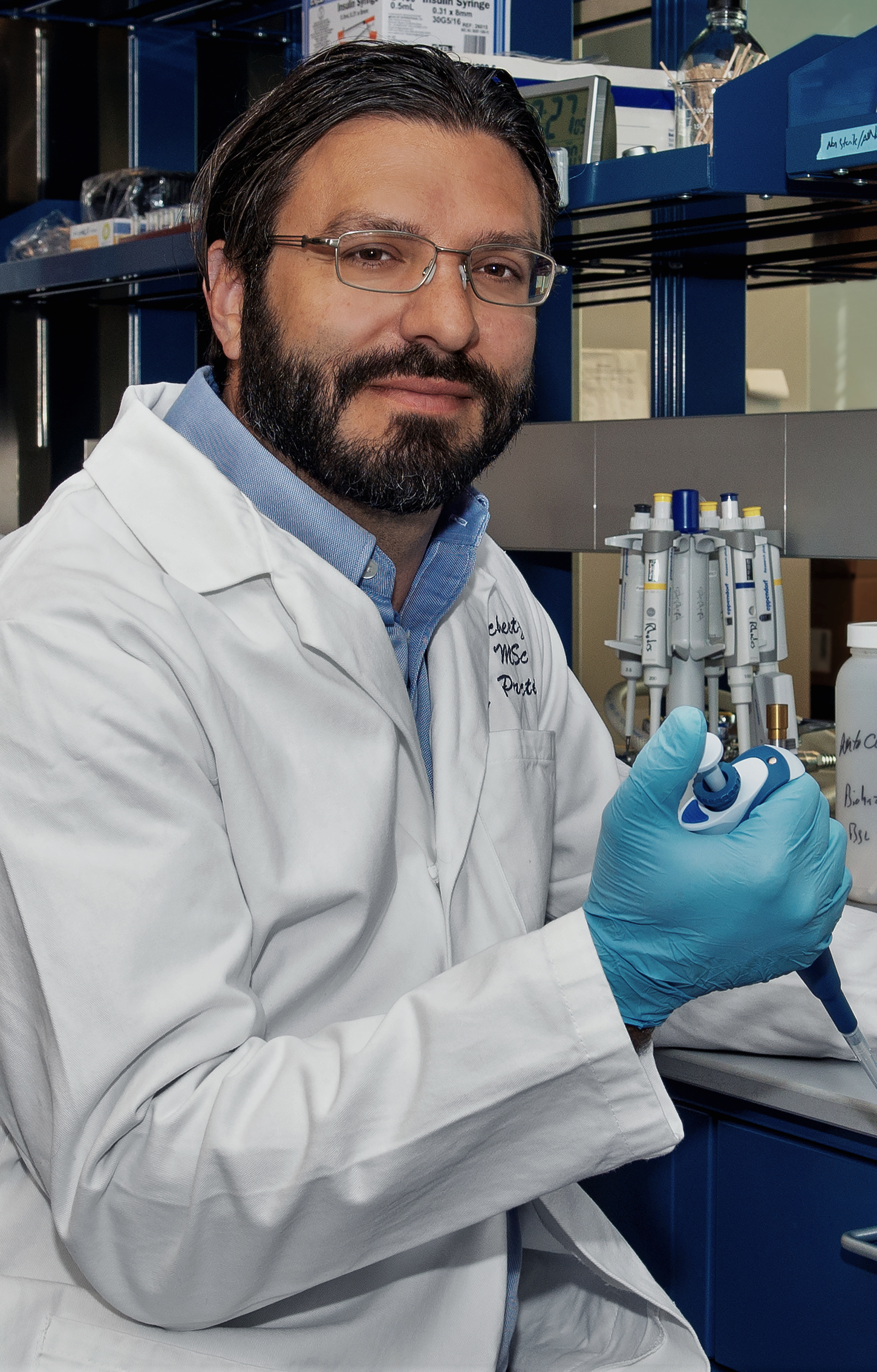- Home
- Stewardship from the Bench
Stewardship from the Bench: Importance of Research and Generating Data for Antibiotic Optimization |
Briefly describe your daily roles as clinician researchers.As clinician researchers, not only do we spend a lot of our time in the lab but we also provide care to hospitalized patients. In both settings, we work alongside very skilled laboratorians as well as clinicians. Our primary focus is on clinical translational research of antimicrobial PK/PD, toxicity, and efficacy. Most of our research is inspired from the patient’s bedside as we are classically trained clinical pharmacists who sought research as a means to help address the unanswered questions on the clinical wards. Jack: Fellowship training is largely focused on learning how to be a clinical researcher while continuing the development of clinical knowledge related to infectious diseases. The majority of our research is focused on antimicrobial PK/PD, toxicity, and efficacy. To investigate these questions, we use a variety of methods such as developing animal models and applying advanced pharmacometric methods. As a result, my daily role ranges from working at the laboratory bench, developing analytical methods, creating computer-based models, and teaching students to providing direct patient care as part of the Infectious Diseases pharmacy team at Northwestern Memorial Hospital. Maintaining clinical practice and expertise is an important component of my fellowship since it allows for the identification of relevant clinical issues related to antibiotics, as well as potential solutions that can be applied from the laboratory. Marc: As director of our Pharmacometric Center of Excellence (midwestern.edu/pce), I estimate that approximately 60-70% of my time is spent in “research activities,” which are mostly comprised of laboratory administration, data analysis, writing, and reviewing. At any given time, we have several ongoing pre-clinical and clinical protocols, grant deadlines , reviews pending, and manuscripts at various stages of completion. Our bench research encompasses drug assay development, in vivo animal toxicology analysis, in silico modeling, and data modeling. The computer-based data modeling (i.e. in silico modeling) is probably the most central tie in our laboratory as we seek to quantitatively understand exposure-response relationships and the variables that modify them. We are fortunate to work with a large number of learners comprised of fellows, residents, and students. They are constantly identifying research questions and providing the person-power necessary to complete the actual research that generates data.How does our research lab and Pharmacometrics Center of Excellence support antimicrobial stewardship efforts?As our lab is highly translational, we collaborate with our Infectious Diseases and Antimicrobial Stewardship Teams at Northwestern Medicine (link). We participate in several weekly calls, patient care activities, and direct stewardship efforts. We help to teach research methods to our learners, and we provide statistical support to our clinician colleagues to best inform clinical care decisions. We have partnered to help identify unnecessary antibiotic use that is high risk for causing patient harm and have helped to understand epidemiologic risk factors for the selection and transfer of antibiotic-resistant bacteria. We provide support for system-wide antimicrobial dosing recommendations based on patient organ dysfunction and extracorporeal devices, rationale and plans for therapeutic drug monitoring, and select studies necessary to circumnavigate clinical road blocks. For example, our laboratory performed the compatibility testing necessary to ensure that patients could simultaneously receive prolonged infusion piperacillin-tazobactam and vancomycin. What does the future hold for stewardship research?This is an especially exciting time for antimicrobial stewardship research. Nationally, partnerships are thriving between pharmacists and physicians, and there is a good deal of interest in the diagnostic space. believe that an exciting area in the future of stewardship research is in precision medicine, where the term is not solely limited to genetics/genomics. Antimicrobial stewards are poised to deliver personalized care through precision dosing, therapeutic drug monitoring, and early identification of biomarkers that predict treatment successes and failures. The tools that allow individualization of care will ultimately give patients the best chance of recovering from their diseases and the lowest chances of antibiotic misadventures. I see partnerships continuing to evolve and becoming more multi-disciplinary. Stewardship has reached a level of national recognition and pharmacists, physicians, and PhDs involved in the work are beginning to receive the necessary support to advance the field. What does "Being Antibiotics Aware" mean to you?COVID-19 pandemic has shown us the alarming power and impact of an unchecked infectious disease. While the current pandemic remains front and center, the evolution and progression of antibiotic resistance continues to contribute to morbidity and mortality at an alarming rate. We have been fortunate up to this point to have advances in antibiotics that have allowed us to vastly improve patient outcomes since the pre-antibiotic era. “Being antibiotics aware” involves recognizing that without proper oversight and usage of antibiotics, we may regress to the pre-antibiotic era. However, by stewarding resources, investing in new research, and judiciously using our antibiotics, we will avoid that fate.What is one pearl you have for all pharmacists to help them be antibiotic stewards?Every
day that a patient is on an antibiotic should trigger the clinician to consider
risk versus reward for the treatment.
Treatments should be considered proximally for the patient; however, we
should always consider how we can mitigate collateral damage distally to
society. | Jack Chang, PharmD
Infectious Diseases Pharmacotherapy Fellow and Clinical Pharmacist College of Pharmacy, Midwestern University and Northwestern Memorial Hospital, Chicago, IL Marc Sheetz, PharmD, MSc, FCCP, BCPS (AQ-ID)
Professor and Director, Pharmacometrics Center of Excellence Departments of Pharmacy Practice and Pharmacology, Chicago College of Pharmacy and College of Graduate Studies, Midwestern University, and Infectious Diseases Pharmacist, Northwestern Memorial Hospital, Chicago, IL |


